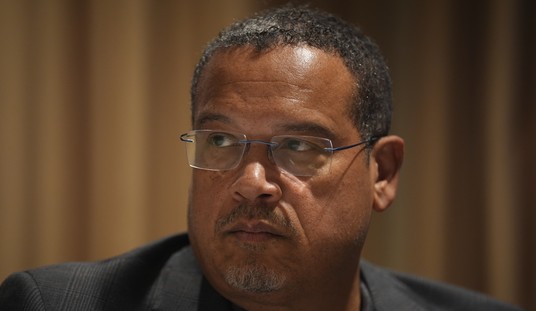“These people, dressed as they are, come from all over the United States to make deals, here in the marketplace of America!” That used to be the introduction for the classic, zany game show Let’s Make a Deal, but the same line could open up each session of Congress, too. Now playing the role of Monty Hall are Lindsey Graham and Bill Cassidy, and they aim to make sure no one gets zonked:
The revised bill includes new provisions that would steer more federal funding to Alaska, Arizona and Kentucky. All three states are home to pivotal GOP swing votes who either have opposed or expressed concerns with the bill — Sens. John McCain, Rand Paul and Lisa Murkowski. However, Democrats said Senate Republicans are using misleading numbers to obscure massive funding cuts still in the Graham-Cassidy plan.
Under the revised text, the bill’s authors now project increases in federal funding for Arizona (14 percent), Kentucky (4 percent) and Alaska (3 percent), which would have seen declines under the previous version, according to a leaked analysis from Trump’s health department. In particular, Murkowski’s home state would uniquely benefit from Sec. 129, which allows the state with the highest separate poverty guideline — Alaska — to receive a 25 percent hike in federal matching funds for Medicaid.
That’s not the only wheeling and dealing going on, either. Over the weekend, Ted Cruz declared that both he and Mike Lee oppose Graham-Cassidy in its current form. Cruz cited a lack of attention to “consumer freedom,” which Cruz and Lee see as the key to lowering premiums:
“Right now, they don’t have my vote, and I don’t think they have Mike Lee’s either,” Cruz said, referring to the Utah Republican, at the annual Texas Tribune Festival in Austin, according to the Tribune. “Now I want to be a ‘yes,’ I want to get there because I think Obamacare is a disaster … but the price to getting there, I believe, is focusing on consumer freedom.”
Cruz continued, “If you want prices to go down — Econ 101, you want prices to go down, you want more choices, more options, more competition, and prices fall,” he said. “What does Obamacare do? Fewer choices, less options, less competition, prices rise. If you want people to have access to health insurance, you want prices to fall.”
Voilà! Just hours later, Graham-Cassidy suddenly relaxed federal mandates even further:
The bill also includes new provisions that would give states more freedom to eliminate federal insurance regulations, as Cruz and Lee have requested. For instance, states could lift existing caps on out-of-pocket costs, which currently prevent insurers from offering bare-bones insurance policies. As a result, people could potentially buy health plans featuring cheaper premiums but higher out-of-pocket costs, which are more attractive to healthier customers.
The problem, at this point, is that any changes are going to have zero-sum effects. Relax the federal mandates too much, and suddenly GOP moderates will get cold feet over the potential impacts on coverage at the margins. Pay off a few senators, and others will gripe that it’s either coming at their expense or that the bill won’t save enough money to matter. All of this, of course, will get missed by the CBO in their initial review, due today or tomorrow. That will force the GOP to vote on a bill without any real indication of its fiscal and market impacts.
With both Rand Paul and John McCain being hard nays (at least at the moment) and Susan Collins and Lisa Murkowski among the skepticals, this looks like a desperation play, a real Hail Mary as time runs out. Even if they could manage to get to 50, it might take all week, given the procedural hurdles in the Senate and the need for an up-to-date CBO score to justify reconciliation. Unless the House is willing to take a snap vote on a moment’s notice on Saturday, time may have already run out.
Remember when the point of repealing ObamaCare was to offer a serious, market-based reform in its place? Good times, good times.








Join the conversation as a VIP Member